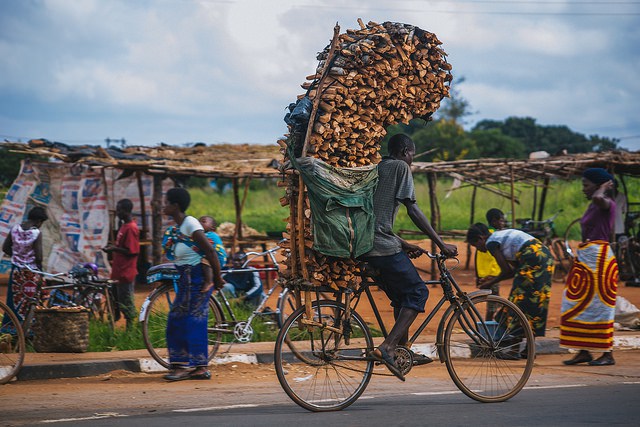Plantations International News

By Milo Mitchell. Initially released by the International Food Plan Study Institute.
In February, I joined San Francisco-based electronic professional photographer Mitchell Maher on a vacation to Tanzania and also Malawi. Both individuals travelled out with each other to make movies and collect photos for some continuous activities IFPRI is involved with in the region.In Tanzania, we
joined IFPRI senior research study other Ephraim Nkonya as well as his German partners, on the enormous Trans-SEC task. This work covers a handful of communities throughout Tanzania, as well as an examples higher than 100 researchers, each concentrating on a different technological location differing from bioenergy to poultry farming.Our video footage highlighted Ephraim’s part of the task, which involved checking sunflower seed oil production in Tanzania. Currently, Tanzania depends significantly on imported hand oil for cooking, regardless of a high possibility for localized sunflower oil farming and processing.We traveled the nation, inspecting out sunflower farmers, cpus, strategy manufacturers, as well as oil barons, searching for a treatment for increasing the production of edible oil within Tanzania, which consequently would certainly boost farmer earnings or even profit the country’s having a tough time economy.In Malawi, we teamed up with IFPRI’s Stefan Meyer on the Food, Power, and even Water Nexus(FEW )Task.
This task surveys the associations in between agriculture, forestry, power, and water sources. We took a journey right into a handful of towns around Lilongwe, finding the cultivating of improved cooking stoves and even their good impact on the ambience. These new cooktops eat hardly any fire wood, which minimizes logging and smoke breathing along with the moment women spend putting together wood-based fuel for cooking.While chasing after the wonderful smoky tracks of these ovens, we observed firsthand the myriad links between logging and also food and energy manufacturing. We took a trip to roadside markets, where plans of firewood along with contraband charcoal are provided. We also visited hydropower plants and water therapy terminals, along with uncovered the undesirable outcomes this dependence on woodland timber is having on various other sectors.Finally, we talked to researchers and also government officials, in the hope that we could put with each other a film convincing adequate to prompt the various ministries to work more collaboratively in guarding the country’s diminishing natural down payments, all the while supporting smallholder farmers.On amongst our last days of capturing, Mitchell, Ken( our motorist), as well as I were lost in an undiscovered woodland. There were no substantial roadways, and even additionally we were making use of an unrefined map to navigate our ways to an area of reported logging. We transformed beside a grove of trees or even saw the blur of a man race away right into the brushwood. Near a shabby stump, stood an extra trembling figure.These 2 woodsmen had really heard our
engine in addition to incorrect us for the woodland police. The one closest to the highway had actually removed, yet the various other was captured and even had actually provided hope of trip. The good news is, we had the capacity to explain that we were not policeman, as well as that we functioned for an organization that helps farmers like him. His sadness right away changed right into a smile, and he informed us that we should invest the mid-day with him, as well as document his technique of life.We signed up with the woodsman as he returned to packing timber on his bike, preparing the cords of wood in an arc that loomed greater than his head. As he attached the knot to maintain the branches protected, he educated us he is stressed regarding food, disclosing that he has yet to consume anything on today. We left him with some water or even a tangerine to manage dehydration below a suffocating midday sunlight as well as watched him go away right into the trees as he began his 50 kilometer bike trip to the closest city.By the moment he has finished his pursuit over rugged dirt roads, the sunshine will have sunk below the hills. If privileged, this woodsmen will certainly market his package for about 1,000 Malawian Kwacha (MWK), or the equivalent of just over US$ 1. Had we been the forest police, the woodsman would certainly have actually been provided a ticket for 5,000 MWK, a quantity similar to around 5 days of work.Our experience with the Malawian woodsmen brought a lot even more inquiries compared with options. Figuring that an entire timberland might perhaps be felled for as low as
$ 50,000, the concealed nature of this unsustainable market financial situation and also its undervaluation of the all-natural source base stresses considerable difficulties at the plan manufacturing level. A vital action to dealing with the concern includes increasing recognition concerning the range of the problem, which is assisted by discussing tales, carrying out research study, and also advertising and marketing strategies that take treatment of the origin of the problem.Over the training course of the following month, we will certainly start cutting a brand-new collection of movies at IFPRI that will help disperse our job to new audiences. These movies will target plan makers in the hope that they will definitely have the ability to pass policies based after the most approximately date in addition to finest research study supplied with the purpose of aiding small farmers and securing in jeopardy natural deposits in their countries. Plantations International
The post Stories from the location: Can video clip footage of smallholder farmers in East Africa have a result at the policy degree? showed up initially on Plantations International.